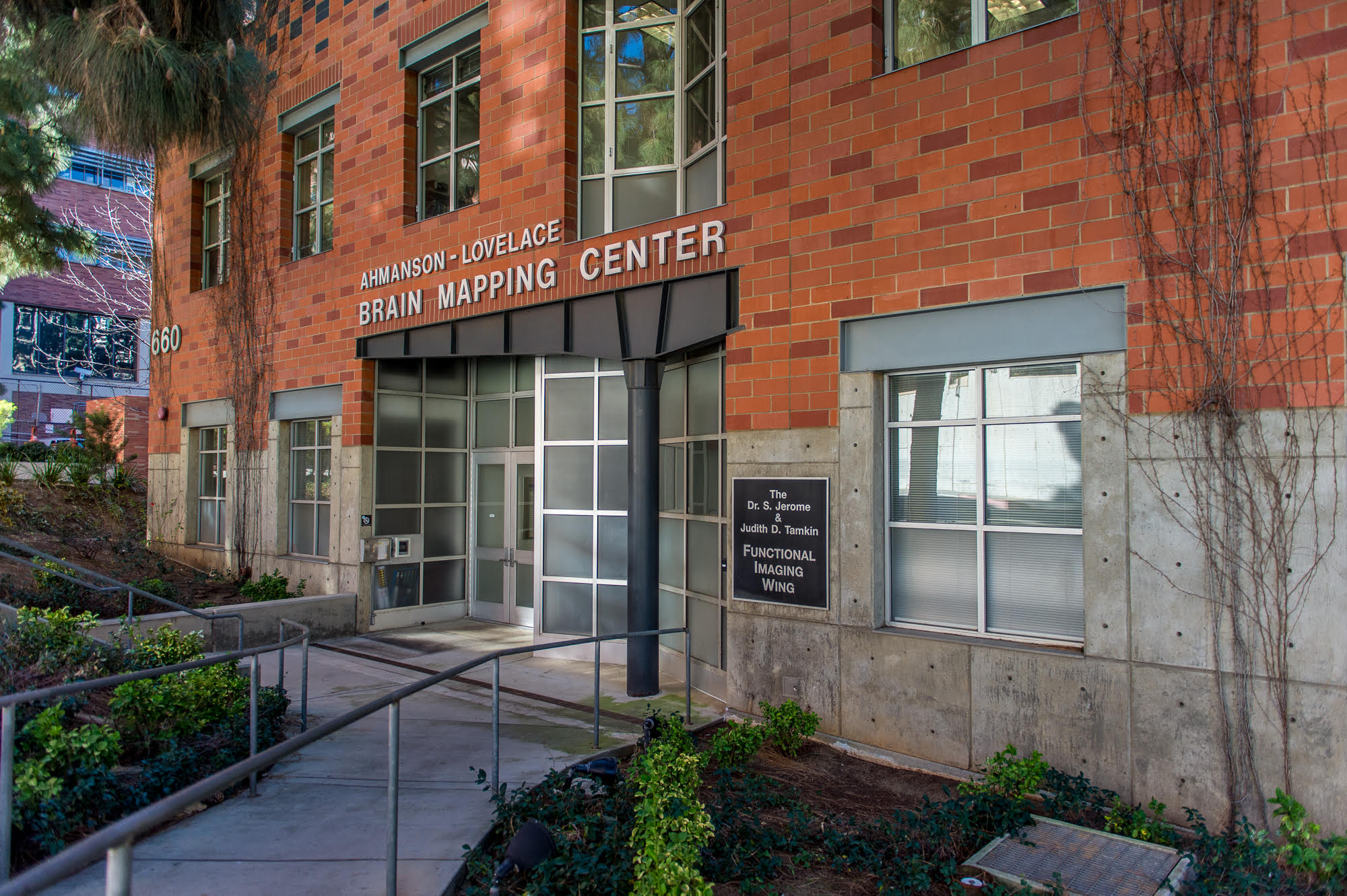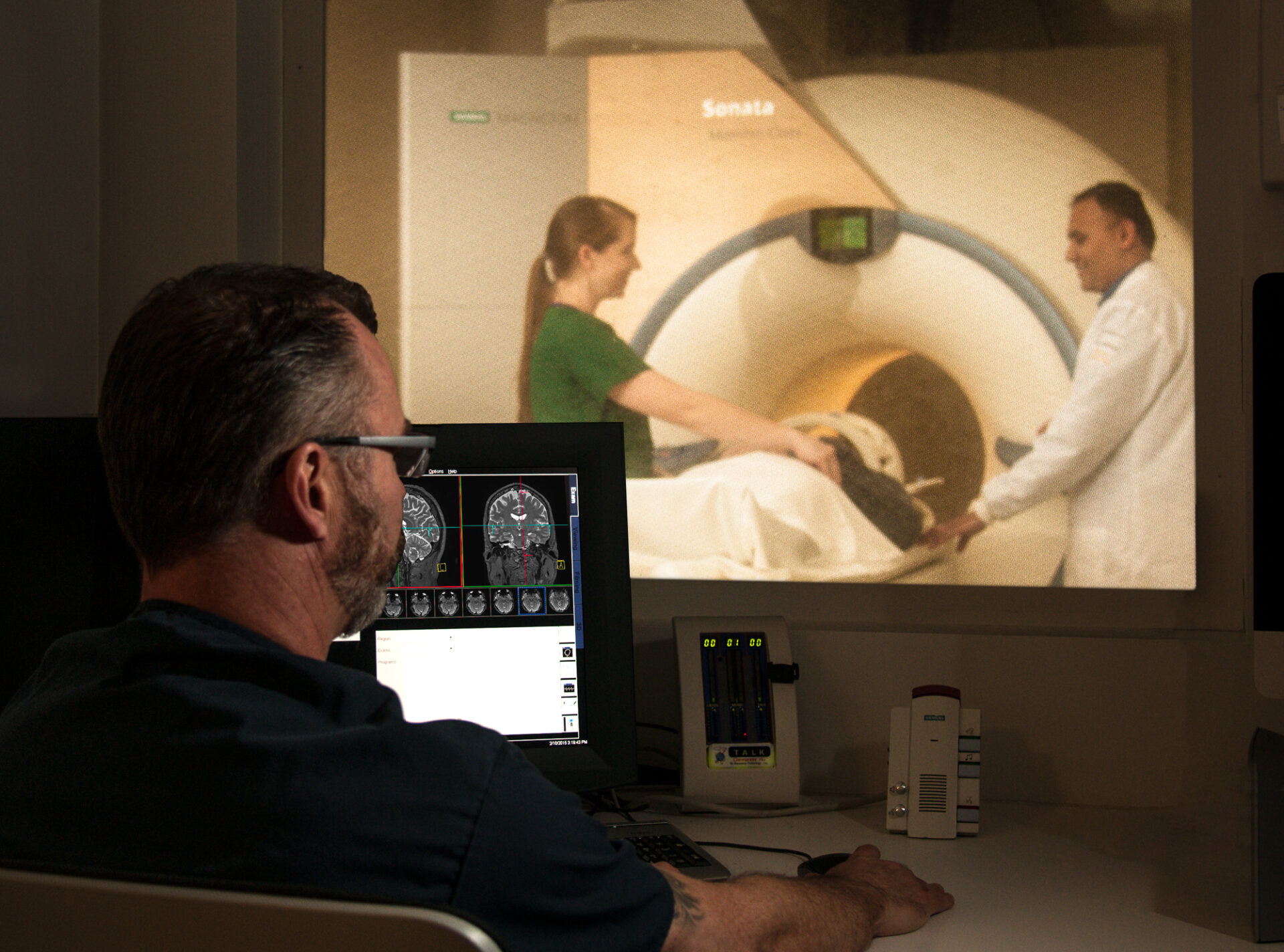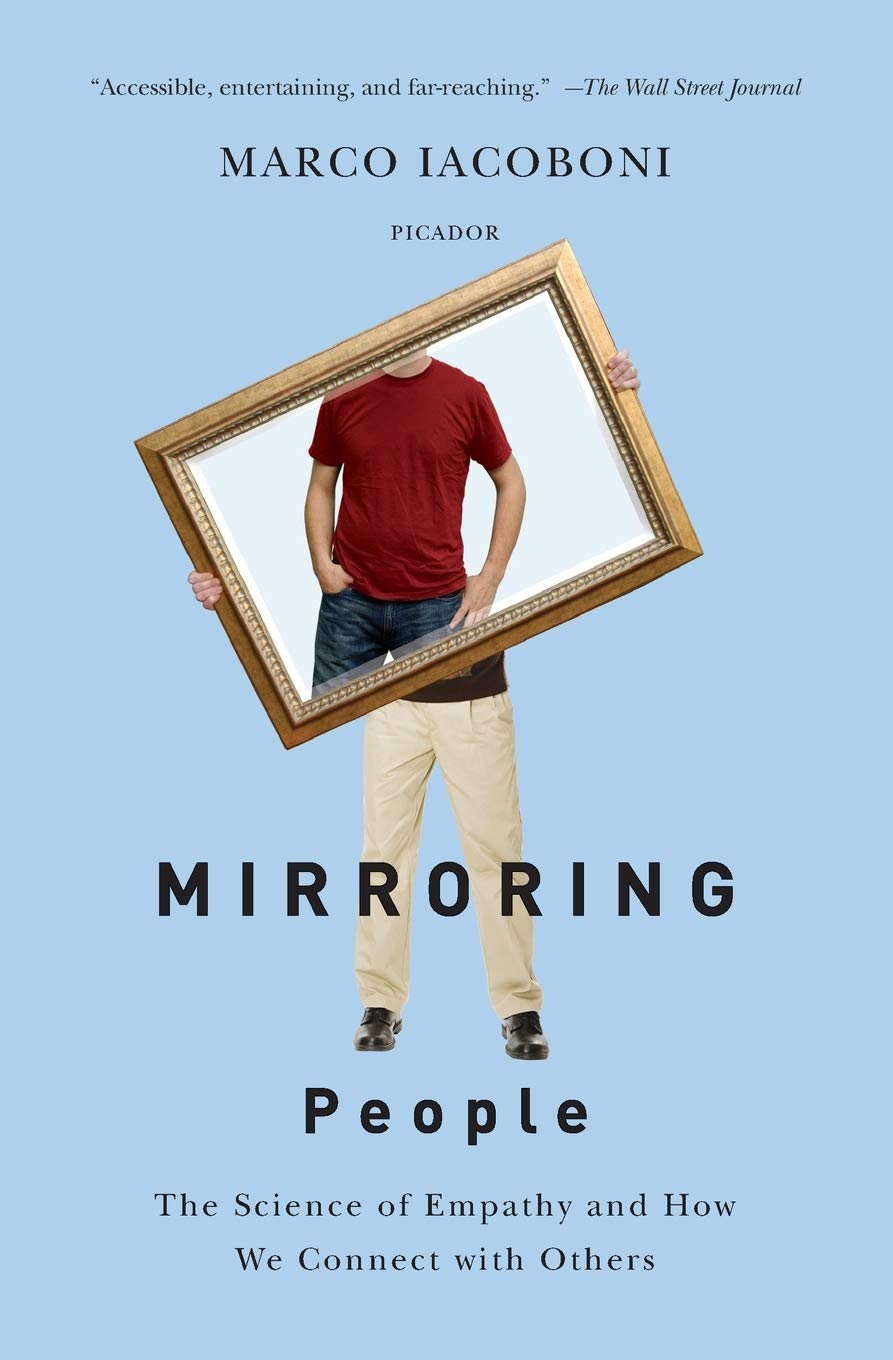Human Mind and Migration Program —THE MIRROR IN BETWEEN
The students of Messaggero Veneto Scuola are part of the impactmania’s internship program for the 2020-2021 academic year. A series of migration topics were explored in this Program that will culminate in an online exhibition and presentation, May 2021.
COVID made us all Digital Nomads, however, it didn’t stop us from cross-cultural, interdisciplinary learning.
BY DENIDA DODA
Did you ever get lost in a mirror, trying to figure out who you are?
An ancient Greek aphorism says, “Know thyself”. But what if we needed to mirror into someone else in order to find ourselves? Then we would have to reach out towards one another. This way we would be able to grasp our own essence as human beings. After all, although we are distinct bodies, we are not different, so there’s no reason for us to be distant.

Professor Marco Iacoboni, M.D., PhD. at the Brain Research Institute, UCLA.
Marco Iacoboni is a neurologist and neuroscientist originally from Rome, Italy. Currently he is Professor in the Department of Psychiatry and Biobehavioral Sciences at the David Geffen School of Medicine, UCLA, and director of the Kreshek Family Neuromodulation Laboratory at the Ahmanson-Lovelace Brain Mapping Center. His brain imaging studies have pioneered the investigation of the mirror neuron system in humans. Iacoboni lives in Los Angeles, California.
What are mirror neurons, where do we find them, and what’s their function?
Mirror neurons are cells that were originally discovered in the monkey brain by a group of neurophysiologists led by Giacomo Rizzolatti in Parma. They were studying the part of the monkey brain that controls grasping. Grasping is that very important action in our daily life: we can’t get out of the house without grasping the door. The researchers were looking into the motor aspects of those cells, but then they found, to their surprise, that some of these cells that are part of the ventral premotor cortex of the monkey, which is the part of the brain that controls the grasping action of the monkey, also responded when the monkey wasn’t doing anything, just watching someone else making a grasping action.
So that’s the whole cause of the mirroring, because if some areas of the brain that control my actions are also active when I’m not moving at all but just watching a human doing the same action, it is as if I’m looking at myself in the mirror. The mirror neuron system seems to introject other people in our brains so we introspectively look into ourselves.
Initially they were discovered in this part of the brain that controls the grasping behavior of the animal, but then studies have shown mirroring phenomena in a bunch of other different areas. There are at least six to eight neuron systems that contain some forms of mirroring.
We were joking when we started investigating mirror neurons in humans, saying we wanted to demonstrate that the human brain is a large mirroring device, but we’re getting close to that. A UCLA study that just came out in Nature shows some mirroring phenomena in the hippocampus, in patients that have implanted electrodes. So, mirror neurons seem to be located in many different brain areas.
As soon as they got discovered, Rizzolatti thought that it sounded like the motor theory of speech perception, which is a theory that was proposed back in the fifties by Haskins Labs. This theory says that the areas of the brain we use to emit speech sounds also activate when we hear someone else speaking. In order for the sender and the receiver of a message to understand each other, there must be a common code which is the activation of the same motor areas of the brain, and we actually demonstrated that.
The other function we attach to them is imitation, because our brain activates not only when we make actions but also when we see other people doing that same action. Imitation is such an important aspect of mirroring behavior: it’s fundamental for empathy, self-awareness, for learning, and hence for the transmission of culture.

Brain Mapping Center, UCLA
What led you to study mirror neurons?
I was in a meeting in Prague in 1995 and Rizzolatti told me about these mirror neurons which he and his team (Vittorio Gallese, Luciano Fadiga, Leonardo Fogassi) had discovered and he wanted to do more experiments. Rizzolatti knew I was doing brain imaging so he asked me if I wanted to collaborate with him. I thought it was a very cool thing and that’s how it all started.
At the beginning I studied imitation but the other thing that I’m studying a lot now is empathy, the link between emotions and the understanding of emotions through mirroring. We activate the same neural systems when we feel emotions and when we see other people expressing those emotions.
What’s the link between mirror neurons and language?
In your book Mirroring People: The Science of Empathy and How We Connect With Others you say that conversation is easier than monologue. Is communication and therefore interaction with others easier than hearing our own ego i.e. voice? What in practice have you seen that improves our understanding of each other that is supported by your research?
Imitation is such a key factor in language acquisition and being a good imitator in very early life facilitates learning.
Because of mirroring we get into understanding most of the speech sounds through this sort of “inner imitation” in our brain. Another aspect is really the back and forth of conversations that happen naturally. The time it takes for me to end what I was saying and for you to start saying something in response is a tenth of a second, it’s very fast. The idea is that we are able to have this fast dialogue because we are sort of into the mind of the speaker and we can anticipate when the speaker is going to end what he/she is saying so that we can come in and say something else and this also facilitates our understanding of each other.
It’s very difficult to listen to someone talking over and over again. That’s why when I go to a class and give a seminar, it’s tough for the audience and for the speaker because it is not a natural thing, we tend to have conversations.
In this case the role of mirror neurons is to transform our bodily actions from a private experience to a social experience to be shared with others through language.
Can mirror neurons be related to a sense of belonging to a community? And in which way mirror neurons can help integrate people and adapt to new cultures?
Yes, I mean, that’s the link to empathy.
Basically we form strong bonds with people of our own communities through this empathic mechanism. We also tend to divide ourselves in different social groups. I always like to cite Marcus Aurelius who says, “If I think of myself as Marcus, my city is Rome, but if I think of myself as a human being, my city is the whole planet”.
Groups are malleable: I’m European, I’m Italian, I’m Roman, I’m a guy who’s been living in L.A. for 30 years, I’m a neuroscientist, I like to play tennis… There are all these aspects that make me part of some social group with whom I can bond more or less.
But at the end of the day we are all humans and we can actually consider this social empathy that is more communal at a world level. Mirror neurons are very important for culture (they allow the assimilation of local traditions) and for forming social groups because they facilitate empathy which is the mediator that allows us to create strong bonds with other people.
In social psychology there’s the artificial group paradigm: the recruited participants are divided into two groups, one with a red t-shirt and the other with a blue t-shirt. And just by using this very silly experiment, people sort of feel that they belong to one group or another and you can see all the dynamics between in-group and out-group sort of relationship.
We are really prone to create bonds, and that’s what mirror neurons tend to do, but the dark side of it is that we can also divide ourselves into different subgroups.
We have an instinct to imitate one another, to synchronize our bodies, so that two individuals can become one entity and be able to find a common identity.
Mirror neurons help us increase empathy and open ourselves to other cultures without forgetting our own. We have evolved to connect deeply with other human beings. Our awareness of this fact can and should bring us even closer to one another.

The scanner control room at the Brain Mapping Center, UCLA
Does isolation inhibit the ability to develop self-awareness?
We think about self in terms of the things that concern us. But the link between social environment and the sense of self are related, as social animals we have social brains.
The mirroring mechanism would seem to be essential for establishing cohesive bonds within social groups. The interdependence between self and other that mirror neurons allows shapes social interactions between people.
We are really shaping ourselves when we make interactions with other people, and that also means that indeed if you’re isolated, then your sense of self becomes sort of impoverished too because your identity is determined by the relationships that you have with other people, especially the ones that are important for you.
So in that sense, yes, living in isolation reduces your capacity to empathize and at the same time impoverishes your sense of self. That’s why intersubjectivity and interactions with other people are fundamental.
Do bi/multicultural people have more developed mirror neurons, given that they are caught between two or more cultures and that we learn by imitating?
That would be my contention, but it’s not an easy thing to demonstrate. I find that people who live in bicultural environments tend to be more open minded and sort of “chameleons in society”.
If we live in a more homogeneous society then we tend to ingrain the values of that society. We typically are even suspicious towards other values. But if we grow up in a multicultural place then we tend to embrace and to be much more open.
In a way mirror neurons are also part of this, in the sense that the more you are exposed to other cultures, to their way of thinking, the more you are actually familiar with those and tend to be empathic also with those sorts of ways of looking at things.
How can these brain cells help us feel what other people feel, empathizing with others? How can we possibly access other minds and understand the minds of other people with this mechanism of mirroring? Knowing others helps us to know ourselves better and this process is mediated by mirror neurons, can these cells help us regain that empathy for others and break down the barrier of prejudice, racial hatred, and above all tear down borders and walls, but start building bridges?
Yes! The short answer is yes.
But let’s not forget that it’s not just mirror neurons. What we’ve been doing for the last ten years is to figure out how these areas that we know are rich on mirror neurons are interacting with other brain regions that are less rich on mirror neurons. These cells seem to create some sort of intimacy between self and other. For people to get “closer” to each other it also requires what we call cognitive control, these areas of the brain that are important for executive functions, for controlling yourself, and for not being too swept away by emotions.
So what we’re looking at now is if the interactions between these cognitive control systems in the mirror areas really make us productive and efficient for other people. One thing in the long-term plan for us is to figure out how this complicated system works so we can actually help people.
There are many people, especially with mental health disorders, that have social cognition impairment; they’re not really good at navigating social environments as competently as healthy people tend to do. That’s the main problem they have.
In people with schizophrenia we can treat prominent symptoms like hallucinations, but we can’t fix social cognition or empathy impairments, because we still don’t know exactly how it works. Social cognition impairment in these patients is the main predictor of low quality of life. What we are trying to figure out is how to make these individuals more socially competent and possibly to intervene and to restore empathic functions through mirroring and interaction of mirroring with other brain systems.

In your book you say that mirror neurons “show that we are not alone, but biologically wired and evolutionarily designed to be deeply interconnected with one another.”
What’s the effect of a society that’s becoming more and more individualistic on these neurons? In which way the study of mirror neurons and the dissemination of research can improve our society?
Unfortunately, we live in a very individualistic society, especially in first world countries. Even though we tend to embrace a sort of world view, we know that other cultures are much more collectivistic, so do not forget that there are these aspects to consider in different countries.
True cross-cultural encounters are actually made impossible by the influence of massive belief systems, religious and political, that continuously deny the fundamental neurobiology that links us together.
And the more we tend to fractionate each other, and to be individualistic, particularly by using technologies and this way of living life, the more we tend to seek others because we kind of need other people.
That’s what motivated me to write my book Mirroring People because I thought it was such a great story: I’ve been taught for many many years that we are selfish beings, that we only care for self preservation and we want the best for our family and close relatives.
With what is going on in our labs it seems that we are actually wired for empathy. That’s why prejudice and this fear of strangers and immigration doesn’t make sense because we’re actually one family and that’s what mirror neurons are evolutionarily teaching us.
Basically mirror neurons are in our brains because of evolution, which is a long process that shapes and selects the features that are adaptive for us. And if we have this developed mechanism of mirroring and we are thus empathic, it’s because it is adaptive for us.
“Our mirror neurons commit us to others. They show the deepest way we relate to and understand each other: they demonstrate that we are wired for empathy, which should inspire us to shape our society and make it a better place to live.”

Denida Doda was born in Udine, Italy in 2003. She is currently attending the fourth year of scientific high school Giovanni Marinelli. Denida is part of the youth editorial staff of the local newspaper Messaggero Veneto and part of the impactmania student internship program.
Featured image: René Magritte, La reproduction interdite (1937).
Lo specchio tra di noi
Gli studenti del Messaggero Veneto Scuola fanno parte del programma di stage di impactmania per l’anno accademico 2020-2021. Una serie di argomenti sulla migrazione sono stati esplorati in questo programma che culminerà in una mostra e presentazione online a maggio 2021.
Il COVID ci ha resto tutti nomadi digitali, tuttavia, non ci ha fermati dall’apprendimento interculturale e interdisciplinare.
DI DENIDA DODA
Marco Iacoboni è un neurologo e neuroscienziato romano. Attualmente è Professore del Dipartimento di Psichiatria e Scienze Biocomportamentali alla David Geffen School of Medicine, dell’Università della California a Los Angeles, e direttore del Laboratorio di Neuromodulazione della Famiglia Kreshek alla Ahmanson-Lovelace Brain Mapping Center. I suoi studi riguardanti l’imaging cerebrale hanno aperto la strada all’indagine sul sistema dei neuroni specchio negli esseri umani. Iacoboni vive a Los Angeles, California.
Ti sei mai perso in uno specchio, cercando di capire chi sei veramente?
Un aforisma dell’antica Grecia dice: “conosci te stesso”. E se avessimo bisogno di rispecchiarci in qualcun altro per poter trovare noi stessi? Allora dovremmo avvicinarci l’un l’altro. In questo modo saremmo in grado di cogliere la nostra essenza come esseri umani. In fondo siamo individui distinti ma non diversi, non c’è alcuna ragione per essere distanti.
Cosa sono i neuroni specchio, dove si trovano e qual’è la loro funzione?
I neuroni specchio sono cellule che originariamente sono state scoperte nel cervello della scimmia da un gruppo di neurofisiologi guidati da Giacomo Rizzolatti a Parma. Stavano studiando il settore del cervello della scimmia che controlla l’afferramento. Afferrare è un’azione molto importante che compiamo ogni giorno: non possiamo uscire di casa senza afferrare la maniglia della porta. I ricercatori stavano esaminando gli aspetti motori di queste cellule ma poi scoprirono, con loro grande sorpresa, che alcune di queste cellule che fanno parte della corteccia premotoria ventrale della scimmia, che è la parte del cervello che controlla l’azione di afferramento della scimmia, si attivavano anche quando la scimmia non stava facendo niente ma semplicemente guardava qualcun altro compiere la stessa azione di afferramento.
Questo è l’effetto di rispecchiamento perché se alcune aree del cervello che controllano le mie azioni sono attive anche quando non mi muovo affatto ma solo osservo una persona mentre esegue la stessa azione, è come se stessi guardando me stesso allo specchio. Il sistema di neuroni specchio sembra introiettare le altre persone nelle nostre menti e quindi noi guardiamo all’interno di noi stessi introspettivamente.
Inizialmente sono stati scoperti in questa parte del cervello che controlla il comportamento di afferramento dell’animale ma, in seguito, gli studi hanno rilevato il fenomeno anche in altre aree, ci sono circa otto sistemi neuronali che presentano questa attività.
Abbiamo iniziato la nostra ricerca come un gioco, volevamo dimostrare che il cervello è un grande congegno rispecchiante, adesso ci stiamo arrivando. Uno studio della UCLA che è appena stato pubblicato su Nature, mostra alcuni fenomeni di rispecchiamento nell’ippocampo, in alcuni pazienti in cui sono stati impiantati elettrodi. Quindi questi neuroni sono localizzati in diverse aree del cervello.
Non appena furono scoperti, Rizzolatti associò la loro funzione alla teoria motoria della percezione del linguaggio, teoria che fu proposta già negli anni cinquanta dai laboratori di Haskins. Questa teoria afferma che le aree del cervello che noi usiamo per emettere suoni vocali, si attivano anche mentre ascoltiamo qualcun altro che parla. Perché l’emittente e il ricevente del messaggio possano comprendersi, dev’esserci un codice comune che è rappresentato dall’attivazione delle stesse aree motorie del cervello, noi siamo riusciti a dimostrarlo.
L’altra funzione che attribuiamo loro è l’imitazione perché il nostro cervello non si attiva soltanto quando svolgiamo azioni ma anche quando vediamo altre persone eseguire quelle stesse azioni. L’imitazione è un aspetto molto importante del comportamento rispecchiante, è fondamentale per l’empatia, per l’autoconsapevolezza, per l’apprendimento e perciò anche per la trasmissione della cultura.
Cosa l’ha portata a studiare i neuroni specchio?
Ero ad un incontro a Praga nel 1995 e Rizzolatti mi parlò di questi neuroni che aveva scoperto assieme al suo team (Vittorio Gallese, Luciano Fadiga, Leonardo Fogassi), voleva fare ulteriori esperimenti. Rizzolatti sapeva che mi stavo occupando di imaging cerebrale quindi mi propose di collaborare con lui. Mi sembrò una cosa molto interessante ed è così che è iniziato tutto.
Inizialmente ho studiato l’imitazione ma l’altra cosa che adesso sto studiando molto è l’empatia, il legame tra le emozioni e la comprensione delle emozioni attraverso il rispecchiamento. Noi attiviamo gli stessi sistemi neuronali quando proviamo emozioni e quando vediamo altre persone che esprimono quelle emozioni.
Qual’è il collegamento tra i neuroni specchio e il linguaggio? Nel suo libro “I neuroni specchio: come capiamo ciò che fanno gli altri” lei dice che la conversazione è più semplice del monologo. È la comunicazione e perciò l’interazione con gli altri più semplice che ascoltare il proprio ego i.e. voce? Cosa effettivamente migliora la nostra capacità di comprendere gli altri che è supportato dalla sua ricerca?
L’imitazione è un fattore chiave nell’acquisizione del linguaggio ed essere buoni imitatori già dall’infanzia facilita l’apprendimento.
Grazie al rispecchiamento noi riusciamo a comprendere la maggior parte dei suoni vocali attraverso questa specie di imitazione interna al nostro cervello. Un altro aspetto riguarda i dialoghi continui che avvengono naturalmente. L’intervallo di tempo che ci impiega una persona a finire di dire ciò che sta dicendo e per un’altra persona di iniziare a dire qualcosa in risposta è un decimo di secondo, è molto veloce. Siamo in grado di avere un dialogo veloce perché è come se fossimo nella mente di chi parla, in questo modo possiamo anticipare il momento in cui il nostro interlocutore finirà di parlare in modo da poterci inserire nel discorso. Anche questo facilita la comprensione reciproca.
È molto difficile ascoltare qualcuno che parla in continuazione. Questo è il motivo per cui quando tengo dei seminari, è pesante sia per il pubblico sia per me perché non è una cosa naturale, noi siamo inclini ad avere conversazioni.
In questo caso, il ruolo dei neuroni specchio è di trasformare le nostre azioni corporee da un’esperienza privata ad un’esperienza sociale per essere condivisa con gli altri attraverso la lingua.
I neuroni specchio possono essere collegati ad un senso di appartenenza ad una comunità? E in che modo possono aiutare ad integrare le persone e ad adattarsi a nuove culture?
Sì, è questo il collegamento con l’empatia.
Fondamentalmente formiamo forti legami con le persone delle nostre comunità attraverso questo meccanismo empatico. Tendiamo anche a dividerci in diversi gruppi sociali. Mi piace sempre citare Marco Aurelio che dice “Se penso a me stesso come Marco, la mia città è Roma, ma se penso a me stesso come essere umano, la mia città è l’intero pianeta”.
I gruppi sono malleabili: io sono europeo, sono italiano, sono romano, sono una persona che vive a Los Angeles da 30 anni, sono un neuroscienziato, mi piace giocare a tennis,… Ci sono tutti questi aspetti che mi rendono parte di un gruppo sociale con cui posso legare più o meno.
Ma alla fine siamo tutti umani e possiamo considerare questa empatia sociale che è più comune a livello mondiale. I neuroni specchio sono molto importanti per la cultura (permettono l’assimilazione delle tradizioni locali) e per formare gruppi sociali perché facilitano l’empatia che è il mediatore che ci permette di creare forti legami con le altre persone.
In psicologia sociale c’è il paradigma del gruppo minimale: i partecipanti reclutati sono divisi in due gruppi, uno con una maglietta rossa e l’altro con una maglietta blu. E solo usando questo banale esperimento, le persone sentono di appartenere a un gruppo piuttosto che a un altro e si possono notare tutte le dinamiche tra le relazioni all’interno dello stesso gruppo e quelle al di fuori del gruppo di appartenenza.
Siamo veramente inclini a creare legami ed è quello che i neuroni specchio tendono a fare, ma il lato oscuro è che possiamo anche dividerci in sottogruppi diversi.
Abbiamo l’istinto di imitarci a vicenda, di sincronizzare i nostri corpi, in modo che due individui possano diventare un’unica entità per trovare un’identità comune.
I neuroni specchio ci aiutano ad aumentare l’empatia e ad aprirci ad altre culture senza dimenticare la nostra. Ci siamo evoluti per connetterci profondamente con gli altri esseri umani. La nostra consapevolezza di questo fatto può e deve portarci ancora più vicini gli uni agli altri.
L’isolamento inibisce la capacità di sviluppare consapevolezza di sé?
Pensiamo a noi stessi in termini di cose che ci riguardano ma il legame tra l’ambiente sociale e il senso di sé sono correlati, visto che siamo animali sociali abbiamo anche cervelli sociali.
Il meccanismo di rispecchiamento sembra essere essenziale per stabilire legami coesivi all’interno dei gruppi sociali. L’interdipendenza tra sé e gli altri che i neuroni specchio permettono, plasma le interazioni sociali tra le persone.
Plasmiamo noi stessi quando facciamo interazioni con altre persone e questo significa anche che se rimani isolato, allora anche la tua percezione di te stesso si impoverisce, perché la ragione della tua identità è determinata dalle relazioni che hai con le altre persone, specialmente quelle che sono importanti per te.
Quindi in questo senso, sì, vivere in isolamento riduce la capacità di empatizzare e allo stesso tempo impoverisce la consapevolezza di sé. Ecco perché l’intersoggettività e le interazioni con le altre persone sono fondamentali.
Le persone bi/multiculturali hanno neuroni specchio più sviluppati, dato che vivono tra due o più culture e visto che si impara imitando?
Non è una cosa facile da dimostrare. Trovo che le persone che vivono in ambienti biculturali tendono ad essere di mentalità più aperta, quasi come dei “camaleonti nella società”.
Se viviamo in una società più omogenea allora tendiamo a radicare i valori di quella società nella nostra identità. In genere siamo anche sospettosi verso altri valori, ma se cresciamo in un luogo multiculturale allora tendiamo ad accogliere e comprendere i valori delle altre culture e ad essere molto più aperti.
Anche i neuroni specchio sono coinvolti in questo, nel senso che più si è esposti ad altre culture, ai vari modi di pensare, e più si ha effettivamente familiarità con questi e si tende ad essere più empatici.
Come possono queste cellule cerebrali aiutarci a sentire quello che provano gli altri, ad entrare in empatia con gli altri? Come possiamo accedere ad altre menti e capire altre persone con questo meccanismo di rispecchiamento? Conoscere gli altri ci aiuta a conoscere meglio noi stessi e questo processo è mediato dai neuroni specchio, queste cellule possono aiutarci a ritrovare quell’empatia per gli altri e abbattere la barriera del pregiudizio, dell’odio razziale, e soprattutto abbattere confini e muri ma iniziare a costruire ponti?
Sì! La risposta breve è sì.
Ma non dimentichiamo che non si tratta solo di neuroni specchio. Quello che abbiamo fatto negli ultimi dieci anni è stato capire come queste aree che sappiamo essere ricche di neuroni specchio interagiscono con altre regioni del cervello in cui la presenza di neuroni specchio è ridotta. Queste cellule sembrano creare una sorta di intimità tra sé e gli altri. Per avvicinare le persone le une alle altre richiede anche quello che chiamiamo controllo cognitivo, queste aree del cervello che sono importanti per le funzioni esecutive, per il controllo di se stessi, per non essere travolti dalle emozioni.
Quello che stiamo studiando ora è se le interazioni tra questi sistemi di controllo cognitivo nelle aree ricche di neuroni specchio ci rendono davvero produttivi, efficienti per le altre persone. Un obiettivo per noi è quello di riconfigurare come funziona questo sistema complicato in modo da poter effettivamente aiutare le persone.
Ci sono molte persone, soprattutto con disturbi di salute mentale che hanno disabilità cognitiva sociale, che non sono capaci di partecipare alla vita sociale con la stessa competenza delle persone sane. Questo è il loro problema principale.
Nelle persone con schizofrenia possiamo trattare quei sintomi prominenti come le allucinazioni, ma non possiamo curare la disabilità cognitiva sociale o empatica, perché non sappiamo esattamente come funziona. La disabilità cognitiva sociale in questi pazienti è il predittore della bassa qualità della vita. Quello che stiamo cercando di capire è come rendere questi individui più socialmente competenti ed eventualmente intervenire e ripristinare le funzioni empatiche attraverso il rispecchiamento e la sua interazione con altri sistemi cerebrali.
Nel suo libro lei dice che i neuroni specchio “mostrano che non siamo soli, ma biologicamente legati ed evolutivamente progettati per essere profondamente interconnessi gli uni con gli altri”. Qual è l’effetto di una società che sta diventando sempre più individualista su questi neuroni? In che modo lo studio dei neuroni specchio e la divulgazione della ricerca possono migliorare la nostra società?
Purtroppo viviamo in una società molto individualistica, specialmente nei paesi del primo mondo. Anche se tendiamo ad abbracciare una visione più ampia del mondo, sappiamo che altre culture sono molto più collettivistiche, quindi non bisogna dimenticare che ci sono anche questi aspetti da considerare nei diversi paesi.
I veri incontri interculturali sono in realtà resi impossibili dall’influenza dei maggiori sistemi di credenze: religiose e politiche, che negano continuamente la neurobiologia fondamentale che ci unisce.
E più tendiamo a dividerci l’un l’altro, e ad essere individualisti, in particolare usando le tecnologie e questo modo di vivere, più tendiamo a cercare gli altri perché abbiamo bisogno di altre persone.
Questo è ciò che mi ha spinto a scrivere il mio libro, perché ho pensato che fosse una storia davvero bella: da quando siamo piccoli ci viene insegnato che siamo esseri egoisti, che ci preoccupiamo solo per l’auto-conservazione e vogliamo il meglio per la nostra famiglia e parenti stretti.
Le nostre ricerche invece ci stanno dimostrando che, in realtà, siamo programmati per l’empatia. Ecco perché il pregiudizio e la paura degli estranei e dell’immigrazione non hanno senso perché siamo un’unica famiglia e questo è ciò che i neuroni specchio ci stanno insegnando evolutivamente.
Fondamentalmente i neuroni specchio sono nel nostro cervello a opera dell’evoluzione, che è un lungo processo che forma e seleziona le nostre caratteristiche adattive. E se abbiamo questo meccanismo sviluppato di rispecchiamento e siamo quindi empatici, è perché ciò è adattivo per noi.
“I nostri neuroni specchio ci legano agli altri. Mostrano il modo più profondo con cui ci relazioniamo e ci capiamo l’un l’altro: dimostrano che siamo fatti per l’empatia, che dovrebbe ispirarci a plasmare la nostra società e renderla un posto migliore dove vivere.”
Denida Doda è nata a Udine nel 2003. Attualmente frequenta il quarto anno del liceo scientifico “Giovanni Marinelli”. Fa parte della redazione ragazzi del quotidiano locale “Messaggero Veneto Scuola” e del programma di stage di impactmania.
